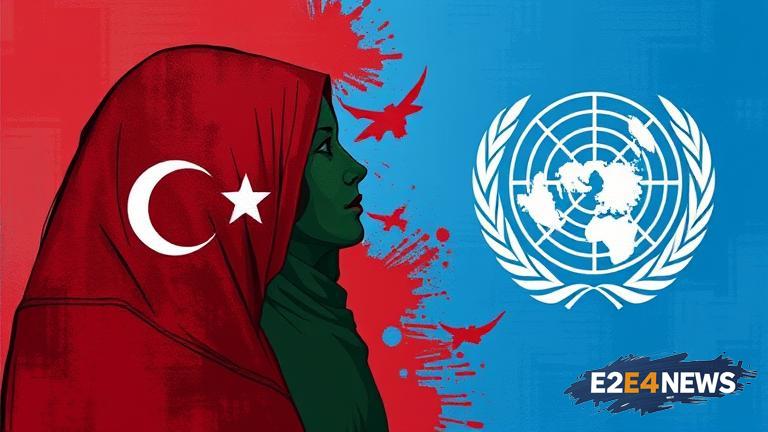A recent complaint submitted to the United Nations has brought attention to the pervasive issue of gender-based violence in Libya, highlighting the country’s failure to protect its citizens from abuse and hold perpetrators accountable. The complaint, filed by a coalition of human rights organizations, alleges that Libya has consistently failed to meet its international obligations to prevent and respond to gender-based violence. Despite being a signatory to several international treaties, including the Convention on the Elimination of All Forms of Discrimination Against Women, Libya has been criticized for its lack of progress in addressing the issue. Gender-based violence is a widespread problem in Libya, with women and girls facing significant risks of abuse, including domestic violence, rape, and forced marriage. The complaint also highlights the particular vulnerability of migrant and refugee women, who are often subjected to exploitation and abuse. The Libyan government has been accused of failing to provide adequate support services for survivors of gender-based violence, including access to medical care, counseling, and legal assistance. Furthermore, the complaint alleges that the government has failed to investigate and prosecute cases of gender-based violence, allowing perpetrators to act with impunity. The UN has been urged to take action to address the situation, including calling on the Libyan government to implement policies and laws to prevent and respond to gender-based violence. The complaint also requests that the UN provide technical assistance and support to help Libya build its capacity to address the issue. The situation in Libya is part of a broader pattern of gender-based violence in the region, where women and girls often face significant barriers to accessing justice and protection. The complaint to the UN is an important step towards highlighting the issue and pushing for change. It is hoped that the international community will take notice of the situation in Libya and work to support the government and civil society organizations in addressing the root causes of gender-based violence. The complaint is also a reminder that gender-based violence is a global issue, requiring a coordinated and sustained response from governments, international organizations, and civil society. In recent years, there has been an increase in awareness and activism around the issue of gender-based violence, with many countries taking steps to strengthen their laws and policies. However, much work remains to be done, particularly in countries like Libya, where the issue is often shrouded in silence and stigma. The complaint to the UN is an important step towards breaking this silence and pushing for action. It is a reminder that gender-based violence is not just a women’s issue, but a human rights issue that requires a response from all sectors of society. The international community has a critical role to play in supporting countries like Libya to address the issue, through providing technical assistance, funding, and diplomatic support. Ultimately, addressing gender-based violence will require a sustained and coordinated effort from governments, international organizations, and civil society. It will also require a fundamental shift in societal attitudes and norms, to recognize the inherent dignity and worth of all individuals, regardless of their gender. The complaint to the UN is an important step towards achieving this goal, and it is hoped that it will be followed by concrete action to address the issue. The situation in Libya is a reminder that gender-based violence is a complex and multifaceted issue, requiring a comprehensive and nuanced response. It is not just a matter of changing laws and policies, but also of addressing the underlying social and cultural norms that perpetuate violence against women and girls. The complaint to the UN is an important step towards highlighting the issue and pushing for change, and it is hoped that it will be followed by a sustained and coordinated effort to address the root causes of gender-based violence. The Libyan government has a critical role to play in addressing the issue, and it is hoped that they will take the complaint seriously and work to implement the necessary reforms. The international community also has a critical role to play, in providing support and assistance to help Libya address the issue. Together, it is possible to make a difference and create a safer, more just world for all.
